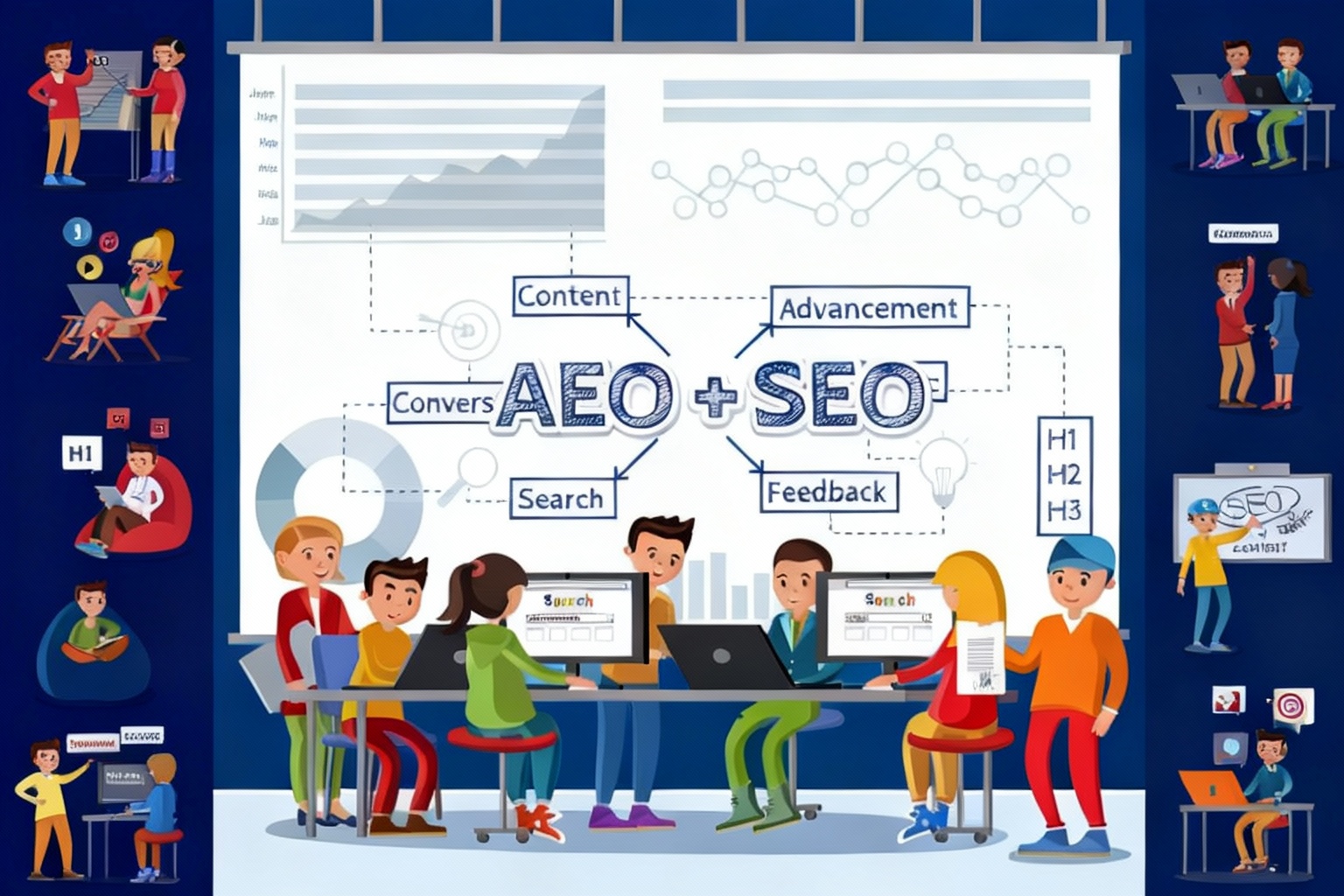As part of its commitment to delivering the most relevant and authoritative results to users, Google is making significant changes to how it presents information obtained from searches. A notable shift is the reduced use of AI overviews in search results. These overviews, created using generative AI technology, helped users quickly understand complex information from a range of sources in new ways. However, recent findings indicate that the tech titan is cutting back on their use, providing valuable insights into the deployment of AI Overviews. The reasons cited for this significant shift bring into focus Google's constant efforts to prioritize quality, reliable information and address concerns related to potential misinformation. It’s clear that this move will significantly impact users and creators alike, hinting at a broader interplay between AI technology and information integrity.
The reduced use of AI-generated overviews
AI overviews have been a prominent feature in Google Search, providing users with succinct, AI-driven summaries of their queries. Part of Google's generative AI initiatives, these overviews made the search experience more efficient, particularly for complex or multifaceted queries. However, recent findings indicate that Google has been scaling back the use of these AI overviews, also known as featured snippets, which provide key information and links to dig deeper.
While they were initially designed as a boon for the end-user, it seems their frequency and application have been curtailed, pointing towards a shift in Google's strategy in delivering search results and potentially impacting the click-through rate (CTR) for websites featured in these overviews.
How AI Overviews Worked in Google Search?
In simple terms, when a user queried something on Google’s search engine, the AI-generated algorithm would formulate an overview from a variety of sources, including Google's Knowledge Graph and from across the web. This snapshot was designed to provide the users with a quick understanding of complex information.
Overview of AI-driven summaries
The AI-driven summaries or overviews were fast, rich summative snippets of the total information available on the web related to a user's query. They were particularly advantageous when the user wanted to quickly comprehend multi-faceted information. Given their generative AI basis, they were capable of responding effectively to various queries, including specific, ambiguous, and sometimes even convoluted ones. Google's AI Overviews feature draws on Gemini, a large language model (LLM) like the one behind OpenAI's ChatGPT, to generate written answers to some search queries by summarizing information found online. These AI-driven summaries, also known as ChatGPT, have been found to require a lot of work in searches, particularly for Android users seeking quick and accurate information.
Benefits to the users
AI overviews offered several benefits to users:
- They acted as a starting point for users to understand complex information rapidly.
- Provided a comprehensive summary of information reflecting a broad view of the search topic.
- Saved time by gathering information from multiple sources into one accessible summary.
- Encouraged further exploration by providing links for users to dig deeper into the topic.
Reasons Behind the Reduction of AI Overviews
The intentional reduction of AI-generated overviews in Google search results is likely driven by multifactorial considerations. At the forefront are information quality, potential misinformation concerns, and the imperative to prioritize authoritative content sources.
Focusing on information quality and reliability
Google has consistently emphasized the importance of quality and reliability in search results. Taking the reduction in overviews into account, it’s clear there’s an effort to further enhance the user experience by striving for high-quality content. By scaling back the AI overviews as the default, Google is making a conscious effort to uphold the highest standards in delivering reliable, accurate search results and following best practices for appearing in AI Overviews. Additionally, ensuring that the HTML of your content is correctly implemented and visible to Googlebot is crucial in appearing in AI Overviews and staying ahead in the ever-evolving world of search technology.
Addressing potential misinformation concerns
In the era of the information explosion, misleading or incorrect data is a significant concern. AI-generated overviews could inadvertently include or promote misinformation due to the reliance on web content across the internet, including potentially unreliable sources. To mitigate these risks, reducing the use of AI overviews is a strategic move towards combating misinformation and preserving the trust users place in Google.
Prioritizing authoritative content sources
In the world of digital information, the credibility of content depends heavily on its source. By reducing the use of AI overviews, Google is seemingly prioritizing results stemming from authoritative and credible content providers. This indicates a shift towards a stringent bias for quality over quantity, further strengthening the information integrity in Google Search results.
The Impact on Users and Publishers
The reduction of AI overviews has far-reaching implications for both users and content publishers alike. Changes to search visibility and the need for adapting to evolving search algorithms are crucial impacts to consider.
Changes to search visibility
With Google reducing AI overviews, the search visibility of certain sites previously featured in these summaries may be affected. Visibility, when measured in terms of clicks or impressions, forms a key part of any website’s search engine performance metrics. Consequently, it may lead to a shift in SEO strategies for many publishers, who will need to ensure they are following Google's guidelines for appearing in search by utilizing Google Search Essentials.
Adjusting to the evolving search algorithms
The under-the-hood tweaks by Google necessitate adaptation from both users and publishers. Users might need to tweak their search phrases to find the most relevant results, while publishers will likely be driven to optimize their content and SEO strategies to fare well under the revised search algorithms.
Balancing AI Technology and Information Integrity
Advancements in AI have transformed the digital landscape, presenting both opportunities and challenges. Balancing technological power with information integrity is crucial. AI technologies like machine learning and natural language processing enhance efficiency across industries but raise ethical concerns such as data privacy, bias, and transparency. Ensuring integrity requires robust data governance, ethical guidelines, and diversity in AI development to mitigate bias. Balancing innovation with ethics is essential for building user trust and sustainable growth.
Google's ongoing effort to maintain high standards
Over the years, Google has put in considerable effort into refining its search functionalities. The reduction in AI overviews is a testament to Google's ongoing effort to maintain high standards by continuously monitoring and calibrating their algorithms and systems to keep up with users' needs and feedback, ensuring high-quality search features are maintained across its services.
Emphasizing trustworthy search experiences
At the heart of its operations, Google aims to provide a dependable and beneficial search experience to its users. By controlling the use of AI overviews in search results, Google continues to emphasize the provision of trustworthy, high-quality search outcomes, reinforcing the credibility of its platform among the millions of global users.
Conclusion
In conclusion, Google's decision to reduce the utilization of AI-overviews signifies an important shift in its approach to search results. By doing so, Google maintains its commitment to offer accurate, reliable, and user-specific responses, prioritizing quality over quantity and focusing on authoritative sources to provide trustworthy search experiences.
The dynamics of Google Search are continually evolving in this informed digital era, and Google’s modifications serve as a testament to their relentless attempts to strike a balance between advancing technologies and preserving information integrity. It’s clear that both users and publishers must adapt to these changes, potentially shifting their strategies and methods to keep up with Google's evolving algorithms.
Frequently Asked Questions
What are AI overviews in Google Search?
AI overviews in Google Search are concise summaries generated using artificial intelligence. They provide users quick information based on various sources across the web, including Google's Knowledge Graph.
Why has Google reduced the use of AI overviews in search results?
Google has reduced the use of AI overviews to focus on ensuring the reliability and quality of information, addressing potential misinformation concerns, and prioritizing authoritative content sources in search results.
What is the future of artificial intelligence?
The future of artificial intelligence holds immense potential for transforming various industries such as healthcare, finance, and transportation. As technology advances, AI is expected to become more sophisticated, contributing to improved efficiency, personalization, and automation across different sectors.













.webp)



.webp)


